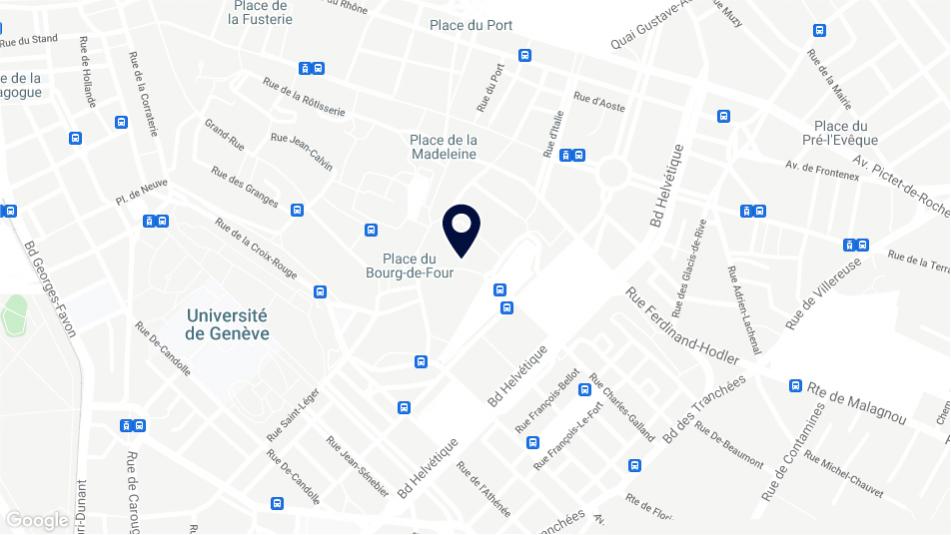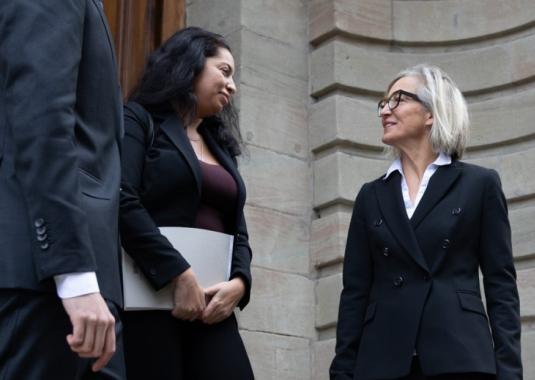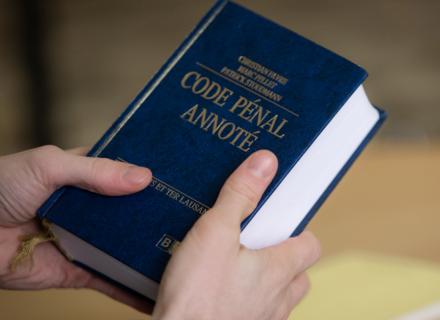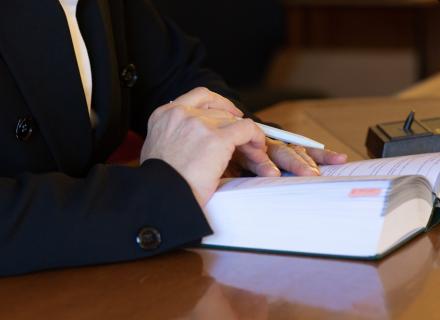Contacts
Address
Contact details
Desk
Opening hours
8h30-12h / 14h-17h (from Monday to Friday)
Mailing address
Tribunal des mineurs
Case postale 3686
1211 Genève 3
Presidency and directorate
-
Mr Stéphane ZEN-RUFFINEN
President
-
Mrs. Aline SOFER
Interim Director
Organization
The Tribunal des mineurs is composed of 6 tenured judges and an equal number of deputy judges; 12 assessor judges (6 doctors and 6 education specialists) are also attached to the Court.
The juvenile judge conducts the investigation alone.
The Tribunal des mineurs is composed of a tenured judge who presides over the Court, a medical assessor judge and an assessor judge specialized in education.
The proceedings are held in camera.
Proceeding
The Tribunal des mineurs is in charge of the 3 steps of the criminal proceedings involving a minor: the investigation, the judgment and finally the execution of the sanction pronounced (sentence and/or measures).
Step 1: conduct of the proceeding
The juvenile judge investigates the proceedings. He/she may, in particular, provisionally pronounce protective measures and order provisional detention.
Step 2: judgment
At the end of the investigation, the judge may alternatively:
- Close the case.
- Issue a summary penalty order.
- Communicate the proceeding to the Public Prosecutor's Office for minors (one of the prosecutors of the Public Prosecutor's Office dedicated to proceedings against a minor) if a placement, a fine of more than
Fr. 1'000.- or a custodial sentence of more than 3 months is involved. In these 3 cases, the Public Prosecutor's Office for minors draws up an indictment and refers the case to the Tribunal des mineurs which will rule on the case after a hearing.
Step 3: execution of the sanction pronounced (sentence and/or measures)
The juvenile judge who conducted the investigation is the authority for the execution of the sentence and/or protective measures pronounced by the juvenile judge or the Tribunal des mineurs, and the protective measures may extend beyond the age of majority but not beyond the age of 25.
Parties to the proceeding
The accused minor, his/her legal representatives, the complainant and, as the case may be, the juvenile prosecutor participate in the proceeding. The complaining party shall not intervene during the proceeding before the Tribunal des mineurs unless special circumstances require it.
At all stages of the proceeding, the parties may be assisted by a lawyer. In some cases, representation by a lawyer is mandatory for the minor defendant (mandatory appointment of a defence lawyer, art. 24 DPMin).
Questions/answers
No, all proceedings are held in camera (without an audience), from the beginning to the end of the execution phase, to preserve the imperatives of protection and education of the minor, subject to the possibility for the judgment authority to order a public hearing when:
- The accused minor capable of discernment, or his/her parents, require it, or
- The public interest requires it
In both cases, the approach must not harm the interests of the minor defendant.
Any person who has been harmed by a criminal offence can file a complaint. To do so, it is sufficient to go to a police station where the statement will be taken. It is also possible to file a complaint by mail to the Public Prosecutor's Office or deposit it at the desk of this instance.
If the complaint is against a minor, it can also be sent directly by mail to the Tribunal des mineurs or deposited at the desk of this instance.
The complaint must be written and signed by the person directly affected by the subject of the complaint. The facts must be described clearly and completely, as well as all the important elements (in particular: date and place of the facts, context, names of the people involved, possible witnesses, etc.). The legal classification of the facts is not necessary, but it can be mentioned.
In the case of offences prosecuted only on a complaint, the time limit for filing the corresponding complaint is 3 months, starting from the day when the injured party knew the offender.




